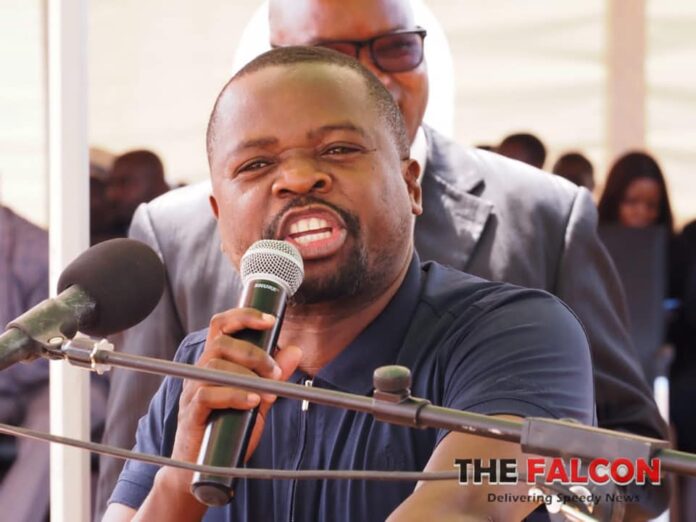Chabinga’s Diplomatic Outburst Raises Questions Over Foreign Policy Discipline
In the wake of controversial remarks made by Mafinga Member of Parliament Robert Chabinga, concerns have emerged regarding Zambia’s diplomatic posture and the apparent silence from the highest offices in response to what some have termed a “grave act of diplomatic indiscipline.”
Chabinga, who has openly aligned himself with the ruling United Party for National Development (UPND) despite holding a seat under the Patriotic Front (PF), shocked the nation during a recent press conference in which he openly castigated members of the diplomatic corps. His statements, broadcast on state television, have since ignited a firestorm of public and political debate.
Observers say such actions could have far-reaching implications for Zambia’s image on the global stage. “Our country has benefited immensely from diplomatic goodwill,” one commentator noted. “From USAID to DFID and even China’s gift of the Kenneth Kaunda Wing at the Mulungushi International Conference Centre, Zambia’s partnerships with the international community have been pivotal to its development agenda.”
Zambia recently saw international solidarity during its declaration of a national drought disaster, with donations flowing in from countries like the United States and Burundi, among others. Critics argue that undermining this goodwill through unrestrained public remarks can jeopardize crucial diplomatic relationships.
The broader concern, however, appears to be institutional. According to some voices within the governance and policy space, Chabinga’s statements reflect a deeper issue — the blurring of boundaries between legislative conduct and executive diplomacy. “In any well-functioning democracy, members of parliament are not permitted to independently conduct or pronounce foreign policy, particularly outside the parameters of inter-parliamentary engagement,” an analyst said.
The development is seen as an embarrassment not only to the leadership of the National Assembly, whose members are expected to understand diplomatic norms, but also to the presidency. “If any lawmaker can take it upon themselves to issue what sounds like foreign policy, and the state remains mute, what precedent does that set for governance?”
While Chabinga’s support for President Hakainde Hichilema is well documented from public endorsements to reports of visible coordination during past political events some argue that such proximity should not grant impunity, especially in areas as sensitive as foreign relations.
The silence from State House following Chabinga’s outburst has only deepened the controversy. “It is not just about public relations. The president must clear the air. The world is watching,” said one political observer. “Our systems must function beyond individuals. If Zambia is to continue receiving international support, it must reaffirm its commitment to diplomatic etiquette.”
The prevailing sentiment is that the nation must protect its hard-earned international credibility. “Zambia is bigger than any individual. Let systems work, and let discipline in foreign engagement be enforced.”



Leadership in the National Assembly of Zambia seems like falling short of expectations always due to various factors, including political dynamics, lack of expertise, and competing interests. In my opinion, it all points that leadership crises, controversies, and scandals have overshadowed a few that are effective. There’s also one thing that I see, foreign policy formulation dominance limiting independent minds.
These are clear signs of state capture and pupp3t regimes. Anyone stepping out of line is dealt with swiftly at a click of a button. Our leaders will never understand real freedom because of their begging mentality.
Loose canon, if you asked me. These are not good friends to have for the UPND!
That MP is suffering from muzungu wanga anikonde syndrome. He thought he is doing his masters a favourable service, but ended up outstretching his luck. Now that he is disowned he also needs to be fired from the purported alliance with UPND. He is a liability to both the government and the opposition.
It would be good for Honourable MPs in Parliament to ask the Minister in charge of foreign relations, through the Speaker, to provide guidance on how MPs should conduct themselves when it comes to the pronouncements they make on matters of Zambia’s foreign relations.
Pity! Such a long story about Chabinga doesnt tell the reader what Chabinga said. Whats wrong with Zedian journalism? The reporters, sub-editors, editors are all sleeping? Just like in the number one snoozing profession: Politics. The entire nation is asleep
Comments are closed.